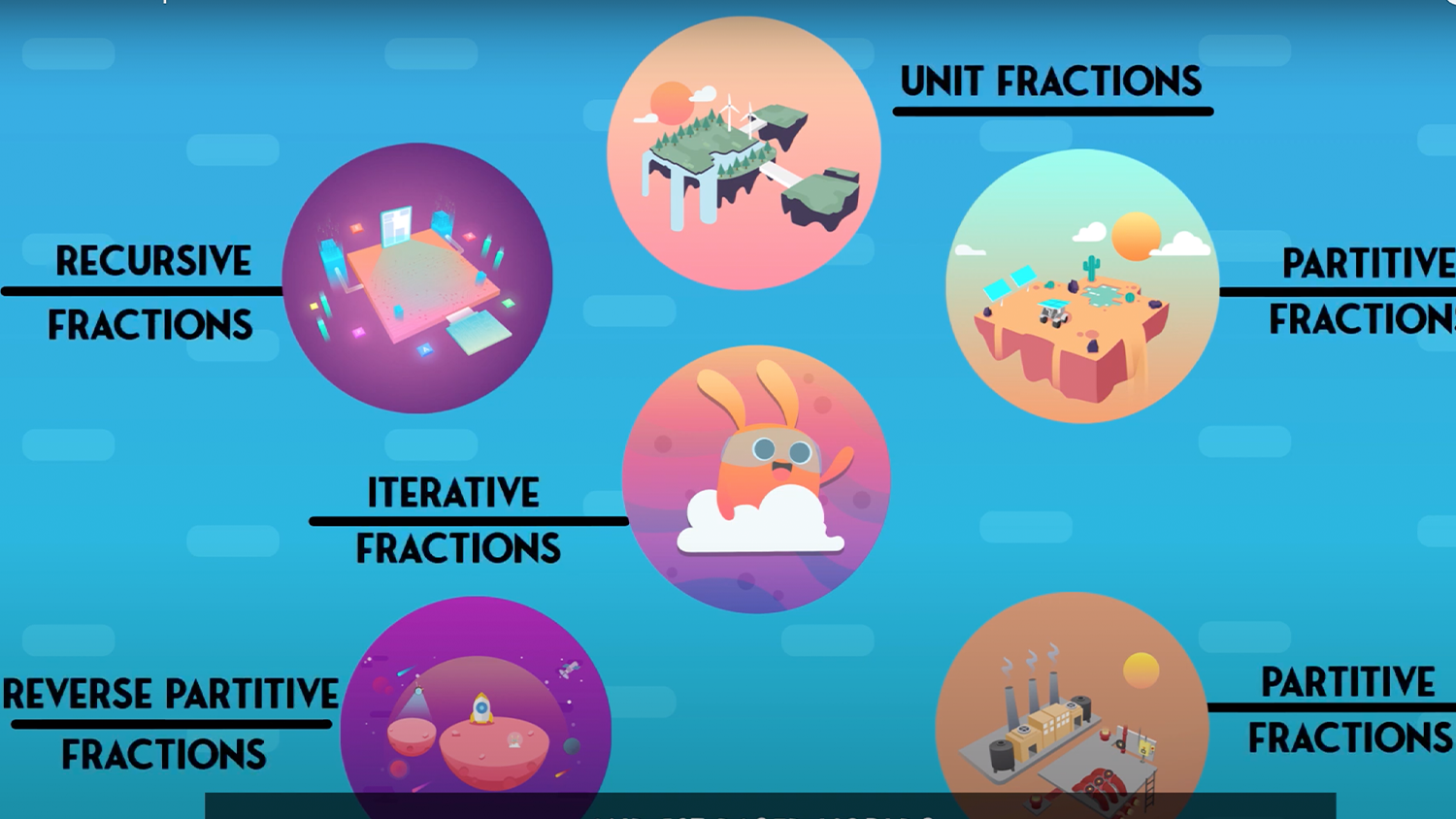Associate Professor Jessica Hunt Shares Benefits of Inclusive, Game-Based Learning Through National Webinars

For the past two years, NC State College of Education Associate Professor Jessica Hunt has been developing and testing a new curriculum that will help students with learning disabilities and difficulties better understand fractions while exploring career opportunities in real-world STEM fields through game-based learning.
The game, called Dream2B, and accompanying Model Mathematics Education (ModelME) curriculum were created using a three-year, $1.4 million National Science Foundation ITEST grant awarded to Hunt and co-principal investigators Matthew Marino and Michelle Taub at the University of Central Florida in 2020
The game allows students to play as a customizable character named Bunny, who encounters six different worlds relating to STEM and information and communication technology (ICT) careers. Challenges in each world are accessed through a universally designed interface with customizable features that enable accessible gameplay. Students are given a choice of tools to use for each challenge to encourage them to employ individual strategies and ways of reasoning.
The game is currently wrapping up a round of testing with teachers and students in Granville, Sampson and Durham counties in North Carolina, and Hunt has recently been invited to share about her work on a national stage.
She presented in March at the Center for Innovation, Design and and Digital Learning (CIDDL) “Supporting Educator Use of Game-Based Learning Environments” webinar and, on April 11, she will present at the STEM Learning and Research Center (STELAR) webinar entitled “Creating Inclusive STEM Opportunities for Students with Disabilities: Formal Settings.” The webinar will be available for free to the public.
“My colleagues, Dr. Matthew Marino and Dr. Michelle Taub, and I are so excited about the work that we are doing in the Model Mathematics Education project, and we feel honored and fortunate to have a space to discuss what we are learning in two national venues,” she said. “Having spaces to discuss the work through the lens of game-based assessment and through the lens of creating inclusive STEM opportunities for students with disabilities relates well to the work we are doing with the Model ME curriculum in elementary schools.”
Below, Hunt shares an update on her work, the importance of providing more STEM opportunities to students with disabilities and the benefits of game-based learning.
The following Q&A has been edited for length and clarity.
Can you share an update on where the ModelME/Dream2B project currently stands?
We are currently in feasibility testing with the game and wraparound curriculum. We have partnered with nine elementary teachers across Granville County, Sampson County and Durham County to implement the game in their classrooms. So far, teachers have taught 17 of the 29 lessons, and we are learning a lot in terms of how teachers are using the materials as well as students’ engagement and learning in the game and in the curriculum.
We hope to conclude this phase of the research by the beginning of May with focus groups to learn more about teachers’ perspectives of how Model ME supported their students’ fraction learning and their understanding of their students’ thinking. We will also talk with students to better understand their perspectives of gameplay. We will take all of these data and analyze them toward a final revision of both the game itself as well as the wraparound curriculum. We’ll test that final version in a larger experimental study next spring.
Why is it so important that more STEM opportunities are made available and accessible to students with disabilities?
Individuals with disabilities are underutilized members of the STEM and ICT workforce. Students with disabilities often exhibit unique traits that are particularly beneficial in STEM and ICT careers, such as sustained attention to detail, systematic procedural knowledge and skills, and the ability to conceptualize outcomes and solutions to complex problems.
Students with learning disabilities (LD), in particular, comprise the largest subgroup of individuals with disabilities served in K-12 schools. Unfortunately, these students often fail to consider careers in STEM and ICT as early as elementary school, and instruction does not always address the unique issues of access to and advancement of STEM knowledge for students with disabilities. For example, students with LD often require access to different tools or objects to learn or express their STEM knowledge. They also benefit from problems that allow for novel solutions because of unexpected prior knowledge brought to instruction. Both instructional design elements position students’ knowledge as important and valuable. Our project is working to produce empirical evidence demonstrating how the design principles in the game and wraparound curriculum help teachers to capitalize on strengths while addressing individualistic needs that students bring to instruction.
What are the benefits of game-based learning for students and educators?
Digital game-based mathematics curricula are one way to improve students’ engagement as well as their learning outcomes. Summaries of gaming research have identified the potential of games to enhance STEM content accessibility, increase collaborative problem-solving and allow students to explore mathematics in ways that were previously inconceivable for students with disabilities. Other researchers found students without disabilities also benefit from similar instruction.
Our curriculum and embedded game was developed using the Universal Design for Learning (UDL) framework to maximize accessibility and engagement by providing conceptual understanding challenges rooted in authentic STEM and ICT careers. Tutorials, action adaptive prompting, and authentic formative and summative assessments are included within the user interface. Game-based, problem-solving and after-game play discussion activities promote connections and strategically link to National Council of Teachers of Mathematics (NCTM) standards.
How is the College of Education preparing future educators to understand how and why to implement different types of instruction (including game-based learning) for their students?
I think one of the many strengths of our college is in our collaborative approach to preparing teachers to understand students’ strengths and how they can leverage those strengths in instruction, including through the use of games, other technologies and inclusive pedagogies. Students can engage with faculty from across program areas and even across departments! The multidisciplinary nature of our work here in the college supports a well-rounded toolbox for teachers to employ in their classrooms.
- Categories:


